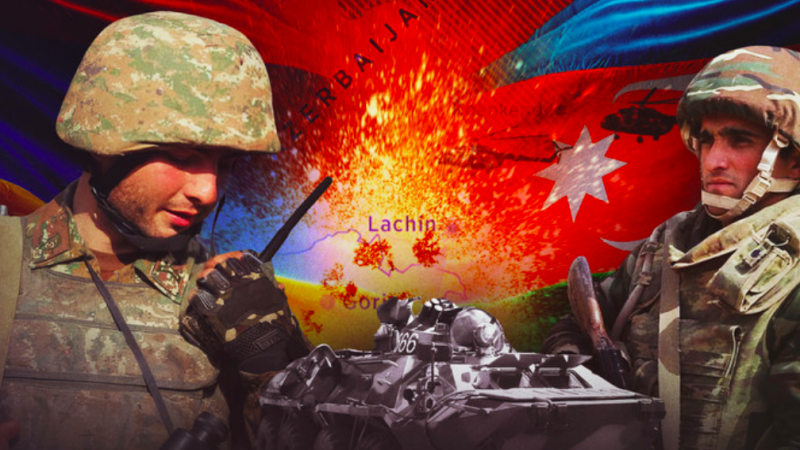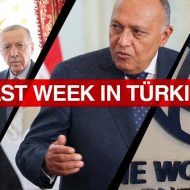Negotiations in the Caucasus between Armenia and Azerbaijan continue. But due to the great geopolitical importance of the region, outside powers, especially the United States and the European Union, intervene in the process, seeking, according to experts, to encircle Russia.
Armenian and Azerbaijani leaders Nikol Pashinian and Ilham Aliyev met informally on the sidelines of an unofficial summit of the Commonwealth of Independent States in St. Petersburg on December 26. Azerbaijani special presidential envoy Elchin Amirbayov said a final peace agreement was close. But experts are more careful.
Dr. Fahri Erenel, ret. Brigadier General, Istinye University, Istanbul says “The two sides still do not recognize the truce as such. They consider the agreement more like a protocol. The Armenian side says it was done too quickly; the Azerbaijani side argues that it only reflects the conditions of that time.”
Elsad Mirbeshiroglu, member of the Azerbaijani parliament for the ruling New Azerbaijan Party states that “Azerbaijan presented its conditions. Armenia declared that it accepted them but has not taken any concrete steps so that a final peace agreement can be signed.”
The Caucasus region is the connection between Central Asia and Europe in terms of energy transfer, and the land connection between Russia and Iran.
Elsad Mirbeshiroglu says, “Using Armenia, the West wants to open a new front against Russia. The United States and France prevent Armenia from taking steps towards peace, because it is not in their interest.”
Russian political scientist Leonid Savin, places the Western approach into the context of the Ukraine conflict: “Because Russia is busier with Ukraine, Western powers, the United States and the European Union are more active in the Caucasus region.”
Armenia was traditionally allied with Russia, which has 10 thousand soldiers in the country. But Armenian Prime Minister Pashinian questions this alliance.
“There is an observation center made up mostly of Russian soldiers on the border of the two countries. Their stay is agreed until 2025, with an option to extend for 5 years. Pashinian rejects it”, says Erenel.
Is there a realistic possibility that Russian soldiers are expelled from Armenia? Leonid Savin answers:
“Yes, I see a great risk of such activity. The Russian soldiers were there before in Karabakh, but Karabakh no longer exists and now, Armenia questions their presence. If the Russian military leaves, there will be much more conflict with Azerbaijan.”
The Russian Foreign Minister described in an interview with TASS as harmful to reflect on the Russian military base in Armenia. The European Union meanwhile increases its influence in Armenia, offering Armenia emergency credits and raising its personnel in the observation mission at the borders. Brussels tries to mediate between the two sides. The Commission is investigating further support of up to €2.6 billion in investments.
Dr. Fahri Erenel, states: “I think that, as a next step, Armenia will be announced as a candidate for membership of the union. Armenia has a very fragile economic situation. This is how they are going to convince that country. But of course, while it’s deciding on that, Armenia needs to take into consideration that it has a Russian nuclear power plant that produces more than 40% of its energy, that there is a strong Russian military presence that protects its borders with Azerbaijan and Türkiye.”
Meanwhile, the West threatens Azerbaijan with laws and possible sanctions. Its objective is to damage relations between Azerbaijan and Russia, explains the Azerbaijani parliamentarian and responds:
“The United States likes states it can manage. But Azerbaijan establishes its own relations with all countries in the world, because we are completely free and independent. I believe the US will continue to support Armenia, which threatens not only Azerbaijan but the entire region. But the President of Azerbaijan has made his position very clear.”









Leave a Reply